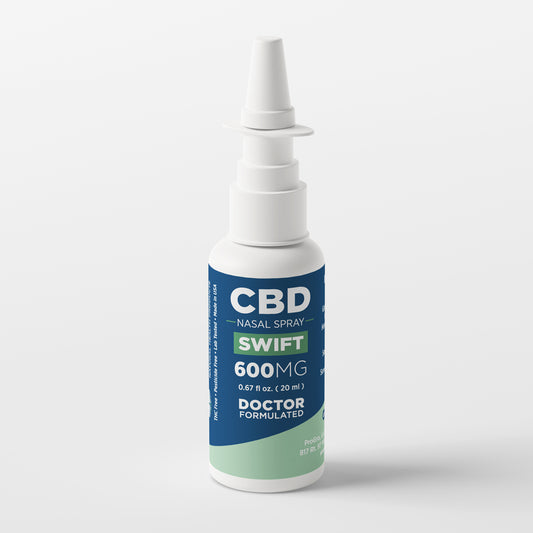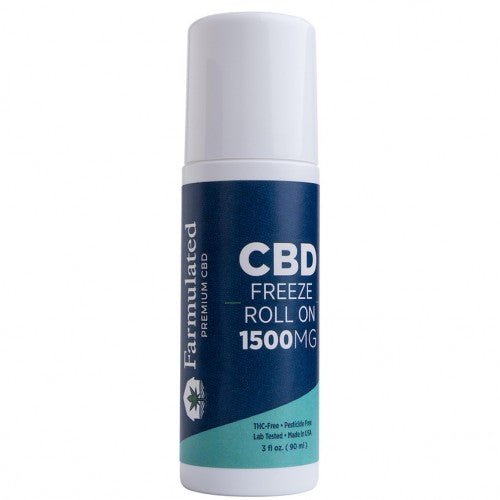Ah, CBD, the buzzword that's taken the wellness community by storm. You've probably heard a lot about its calming and anxiety-reducing effects, but there's another question floating around that's equally intriguing: Does CBD increase your appetite? It's a topic worth exploring, especially since we often associate munchies with cannabis. However, CBD, a non-psychoactive component of the plant, plays by a different set of rules. Let's dive into this topic and see what's on the table (pun intended).
Understanding CBD's Indirect Influence on Appetite
While the direct effects of CBD on appetite are still under investigation, it's important to explore how this compound might indirectly influence eating behaviors. CBD's interaction with the body's endocannabinoid system and its potential impact on various factors like stress, anxiety, and overall well-being can subtly shape our relationship with food.
CBD and Stress-Related Eating
Many individuals find themselves eating more when stressed or anxious. CBD, known for its calming properties, may help in managing these stress levels. By potentially reducing anxiety and improving mood, CBD could indirectly influence eating patterns. A person who feels less stressed might find themselves less inclined to engage in stress-related eating, which could lead to a more balanced appetite.
The Role of CBD in Digestive Health
Digestive health is a crucial factor in appetite and eating habits. CBD has been studied for its potential effects on the gastrointestinal system, including relief from symptoms like nausea or digestive discomfort. By potentially improving gut health, CBD might indirectly contribute to a more regulated appetite, encouraging healthier eating patterns.
CBD and Sleep: The Overlooked Connection
Sleep plays a vital role in regulating hormones that control appetite, such as ghrelin and leptin. Poor sleep can disrupt these hormones, leading to increased hunger and appetite. CBD's potential to improve sleep quality could, therefore, indirectly influence appetite regulation. Better sleep could lead to a more balanced hormonal environment, reducing irregular hunger pangs or cravings.
A Personalized Approach to CBD and Appetite
It's essential to remember that CBD's effects can vary significantly from person to person. Factors like individual body chemistry, lifestyle, and the specific type of CBD product used can all influence how CBD affects appetite. This variability underscores the importance of a personalized approach when using CBD for appetite or weight management.
Combining CBD with Lifestyle Changes
For those considering CBD as part of their appetite management plan, it's beneficial to combine it with other healthy lifestyle practices. Balanced nutrition, regular physical activity, and adequate hydration are foundational elements that enhance the effectiveness of any supplement, including CBD.
Monitoring and Adjusting CBD Usage
Given the complex nature of CBD's effects on appetite, monitoring and adjusting dosage is key. Starting with a lower dose and gradually increasing it allows users to observe how their bodies react and adjust accordingly. This approach minimizes potential side effects and helps identify the most effective dosage for individual needs.
Closing Thoughts
While CBD may not directly stimulate appetite like THC, its indirect influences on factors such as stress, digestive health, and sleep can play a significant role in appetite regulation. The current body of research provides intriguing insights, but also highlights the need for further studies to fully understand CBD's role in appetite and weight management. As always, consulting healthcare professionals before starting any new supplement regimen is advisable, especially for those with underlying health conditions or those taking other medications.
FAQs About CBD and Appetite
Does CBD act as an appetite stimulant?
Surprisingly, CBD doesn't stimulate appetite in the same way as THC, another compound found in cannabis. Unlike THC, CBD doesn't directly trigger hunger. However, it can influence factors that affect appetite. For example, by reducing anxiety or improving mood, CBD might make food more appealing indirectly. Also, CBD's effects on the endocannabinoid system, which plays a part in regulating appetite, can vary from person to person.
How does CBD impact appetite and body weight?
The relationship between CBD and body weight is complex. Some studies suggest CBD might help in managing weight by influencing the body's metabolism. However, it's important to note that research in this area is still evolving. While some people report a decrease in appetite after using CBD, others experience no significant change. It's a highly individualized response, and the exact mechanisms are still under investigation.
Is there any research on CBD for conditions like Lennox-Gastaut Syndrome and appetite changes?
Yes, CBD has been studied for its role in treating conditions like Lennox-Gastaut Syndrome. In these studies, researchers have also observed appetite changes. For instance, a study published in the International Journal of Molecular Sciences (Int J Mol Sci) by Hindocha C, Green SF et al., noted that patients receiving a CBD dose of 20 mg/kg/day sometimes experienced changes in appetite. However, these studies primarily focus on the effectiveness of CBD in treating seizures, with appetite changes being a secondary observation.
What does the research say about the ideal CBD dose for appetite stimulation?
Determining an ideal CBD dose for appetite stimulation is tricky, as CBD doesn't consistently stimulate appetite. Studies vary, with some using doses as low as 10 mg/kg/day and others going as high as 20 mg/kg/day. When considering using CBD oil for appetite-related issues, it's crucial to consult with a healthcare professional for personalized advice.
Are there any reliable studies on the effects of CBD on appetite?
Yes, there are several studies, but it's important to be aware of the risk of bias. To find the most reliable information, one can look at randomized double-blind placebo-controlled studies, which are considered the gold standard in clinical research. These studies are available in databases like PubMed and Cochrane. For example, the study we previously mentioned by Hindocha C, Green SF et al., published in a peer-reviewed journal, can offer valuable insights into the effects of CBD on appetite, although results can vary.
Can CBD oil lead to a decrease in appetite?
It's a common misconception that CBD oil always leads to an increase in appetite. In reality, its effects can vary. Some individuals might experience a decrease in appetite after using CBD oil. This reaction is typically associated with the compound's potential to alleviate symptoms like nausea or anxiety, which can indirectly reduce the desire to eat. However, this is not a universal reaction and differs from person to person.
What are the long-term effects of CBD on appetite?
Long-term studies on the effects of CBD on appetite are still relatively limited. Most existing research focuses on short-term outcomes. However, preliminary data suggests that consistent use of CBD doesn't significantly alter appetite patterns in a drastic manner over the long term. But, as with any supplement, long-term use should be monitored and guided by a healthcare professional.
Does the method of consuming CBD affect appetite differently?
The method of consuming CBD might influence its effects on appetite. For instance, inhaling CBD as vapor can lead to quicker onset of effects but might not directly influence appetite. In contrast, ingesting CBD, such as in the form of edibles or oils, could have a more noticeable impact on digestive processes and appetite sensations. However, more research is needed to fully understand these differences.
Are there any specific studies from the PubMed and Cochrane databases that focus on CBD and appetite?
The PubMed and Cochrane databases are rich resources for academic research on CBD. Several studies within these databases examine the relationship between CBD and appetite, among other health aspects. For instance, randomized double-blind placebo-controlled trials provide insights into how different dosages of CBD might affect appetite. These studies are crucial in providing a scientific basis for understanding CBD's role in appetite modulation.
How do different CBD dosages influence appetite changes?
The influence of CBD dosage on appetite changes or food intake is not linear or straightforward. Lower doses, such as around 10 mg/kg/day, might have minimal impact on appetite. In contrast, higher doses, around 20 mg/kg/day, could lead to more noticeable changes, either increasing or decreasing appetite, depending on the individual's reaction. It's essential to start with a lower dosage and gradually adjust, monitoring the body's response, ideally under medical supervision.





